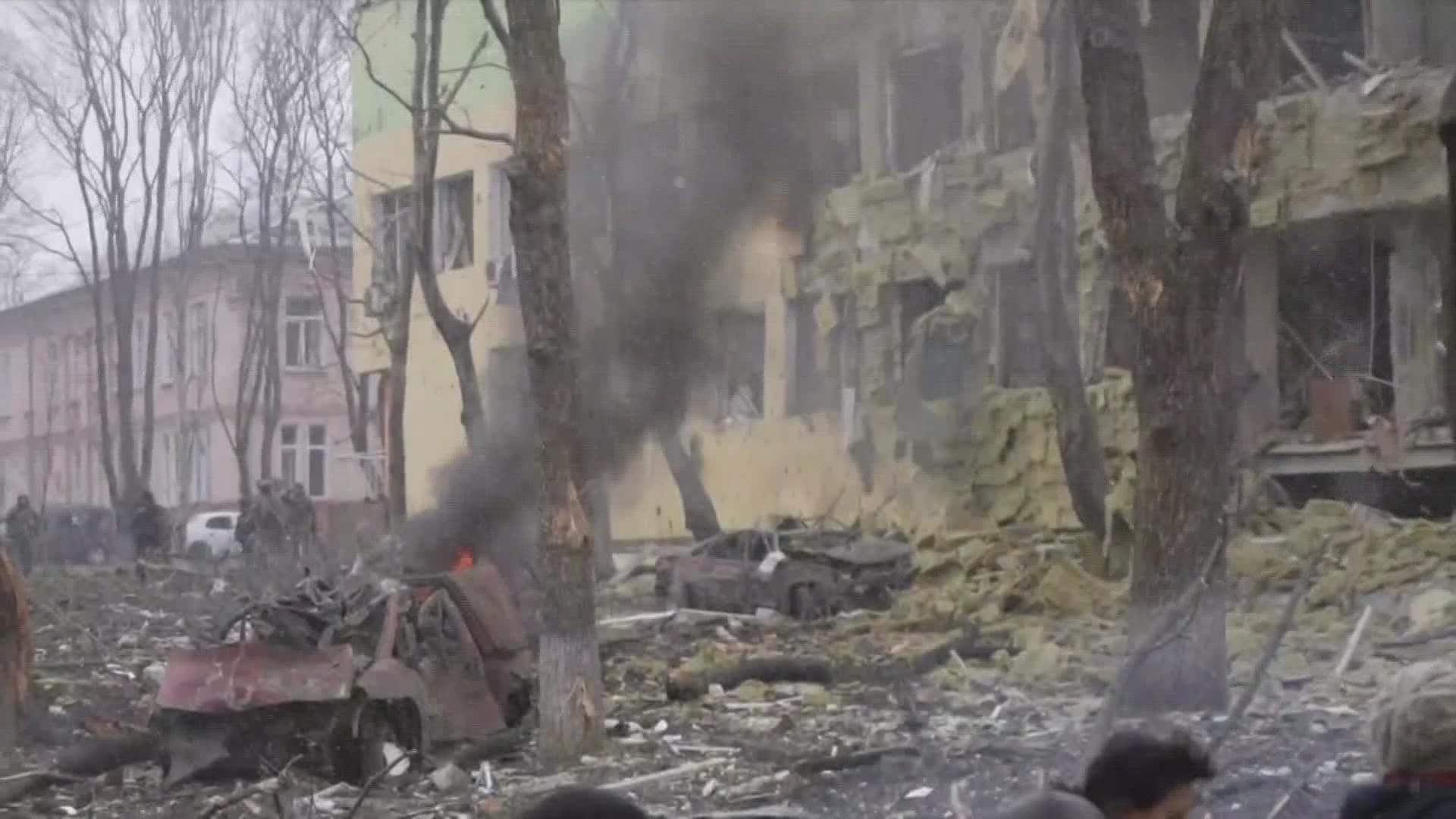BANGOR, Maine — The impact of Russia’s attack on Ukraine is being felt worldwide, including right here in Maine. Some health experts are concerned about the emotional impact the war is having on a specific group of people in our state.
Something as simple as a smell, sound, or video can trigger someone’s post-traumatic stress disorder. Watching tanks roll through the streets of Ukraine and civilians being shot at are what many of us have been seeing daily, including our war veterans.
“I get very irritated," Vietnam war veteran Robert Curtis said when describing his PTSD. "My muscles are all tight.”
At age 19, Curtis flew helicopters in Vietnam, where he was shot at on a daily basis. He told NEWS CENTER Maine he doesn't regret his 22 years of service in the United States Army, but it came at a cost.
“That’s where my PTSD comes from,” he explained.
Over the years, Curtis has worked on controlling his triggers by going to support groups. When he sees the coverage of the war in Ukraine, he said he's OK, but others with PTSD might not be.
“[PTSD] can be a pretty debilitating illness,” Angela Fileccia, a licensed clinical social worker with Northern Light Acadia Hospital, told NEWS CENTER Maine.
Fileccia said if the news out of Ukraine becomes too much to bear, whether you struggle with PTSD or not, remember to take a break from it.
“Limiting the time of your exposure is going to be really key for all of us,” Flieccia explained. "Also, make sure you’re making connections with friends or family and really seeking support [if the war is impacting you]."
The U.S. Department of Veterans Affairs wants vets to remember resources are available to those who may be feeling emotional distress or have been reminded of their own deployment experiences amid the Russian invasion of Ukraine. To speak to a fellow veteran or a therapist, call the crisis hotline at 800-273-8255 and press 1, or text 838-255. The VA's mental health services are also available online at www.MentalHealth.va.gov.

